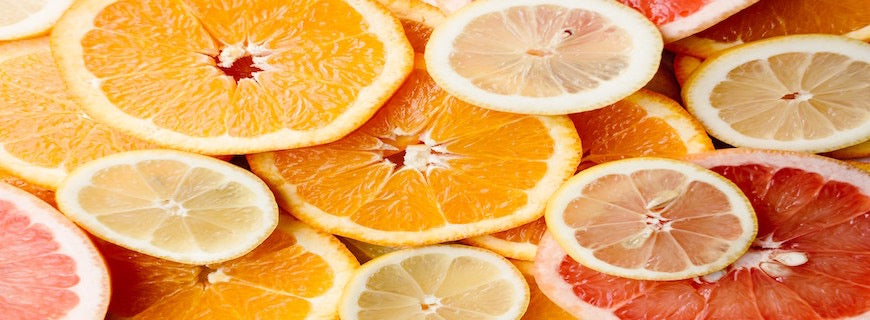There was a very interesting article in Dr Jonathan Wright's newsletter on Nutrition and Healing and why it is important for us to supplement with vitamin C. The following is an extract from the article: 'Vitamin C is synthesised internally by all species of animals with the exception of chimpanzees, monkeys and other primate species, guinea pigs, an obscure bat found in India... and humans. ‘Cats, dogs, elephants, birds, horses, cows – all other species don’t need any vitamin C in their diets at all. Zero!’
How Vitamin C Boosts the Immune System
Dr Wright goes on to point out, ‘All other animals synthesise vitamin C internally from glucose (blood sugar) by a series of four enzymes that are identical to all species.
When stressed in any way, all other animals immediately start to self-manufacture greatly increased quantities of vitamin C to combat the stress.
‘Human liver cells contain the first three enzymes in the vitamin C synthesising series but the fourth enzyme is totally missing!
When humans are stressed, the activity of those first three enzymes is greatly increased but no vitamin C is produced since that fourth enzyme is missing from humans.
‘This means that we are genetically prevented from producing one of the most important anti-stress and detoxifying molecules present in all of nature, vitamin C.’
Now you can see why it is important to supplement with vitamin C, but in case you were in any doubt, let’s look at what the stringent EU Register of Nutrition and Health Claims says about the nutrient:
• Vitamin C contributes to the normal function of the immune system; normal collagen formation for the normal function of blood vessels, bones, skin, teeth, gums and cartilage; normal energy-yielding metabolism; normal functioning of the nervous system; normal psychological function; the protection of cells from oxidative stress; the reduction of tiredness and fatigue.
Moreover, vitamin C increases our ability to absorb iron, a nutrient essential for energy and overall cellular health.
Clearly, vitamin C is not something we should be going without.
Do We Get Enough Vitamin C From Food?
The small amount of vitamin C we get from our food will help us avoid scurvy but does not provide a sufficient enough dose for us to enjoy optimum health and high levels of immunity.
According to Dr Wright’s report, studies show that those who supplement with vitamin C from middle age have considerably longer life spans than those who do not.
This may well explain why there are reports of some spectacular recoveries using high levels of vitamin C therapy.
According to a report published in the journal Nutrients in late 2017, “Vitamin C contributes to immune defense by supporting various cellular functions of both the innate and adaptive immune system.
“Vitamin C supports epithelial barrier function against pathogens and promotes the oxidant scavenging activity of the skin, thereby potentially protecting against environmental oxidative stress.”
The authors later conclude that “supplementation with vitamin C appears to be able to both prevent and treat respiratory and systemic infections,” referencing meta-analysis which indicates that supplementation with daily doses of 200mg or more is effective in ameliorating both the severity and duration of the common cold.
Vibtant Health Vitamin C: A Plant-Based Vitamin C Supplement
When considering purchasing a vitamin C supplement, you should first ensure that it is high quality, in a form which is bioavailable (i.e. useable by the human body) and free of additives, fillers and other synthetic components that may harm you in the long run.
Vibrant Health’s Vitamin C is a terrific plant-based source of vitamin C and synergistic antioxidants. The vitamin C itself is derived from organic acerola and wild-crafted camu-camu fruit.
The combined effect of the various other food ingredients – grape seeds, acai berry juice, green tea leaves, pomegranates, prunes, wild bilberries, blueberries, raspberry seeds – gives very high levels of antioxidants, offering further benefit.
Vibrant Health's Vitamin C’s daily vitamin C dosage is 266mg. Remember, this is wholly natural, food-based vitamin C.
Although this dose is much higher than the recommended daily amount, which is just 40mg in the UK and 90mg in the US, there is no risk of overdose; your body will naturally dispose of the vitamin C it does not need in the urine.
As noted by the NHS, “Taking less than 1,000mg of vitamin C supplements a day is unlikely to cause any harm.”
Indeed, higher doses are considered preferable by many experts. In the book Vitamin C: The Real Story, authors Steve Hickey, PhD, and Andrew W. Saul, PhD, agree that “claims for high-dose vitamin C are among the strongest scientific hypotheses possible in clinical medicine.”
Certainly high-dose vitamin C therapy has been studied as a treatment for cancer patients since the 1970s. But that is another blog for another day. Interestingly, it was recently discovered that high-dose vitamin C kills cancer cells best when administered via IV therapy.
Conclusion: Don't Skip Vitamin C
The importance of vitamin C should never be underestimated, and getting a sufficient amount from our daily diet should be a top priority.
This fact has been underscored by decades of scientific study, and though we often hear that food should be the only source of important nutrients, sometimes a supplement is necessary to avoid a shortfall. This is especially important during winter, due to the nutrient’s immune-boosting properties.
Whether enhancing antioxidant levels, improving iron absorption or reducing heart disease risk, vitamin C can be a life-saver.




























Leave a comment